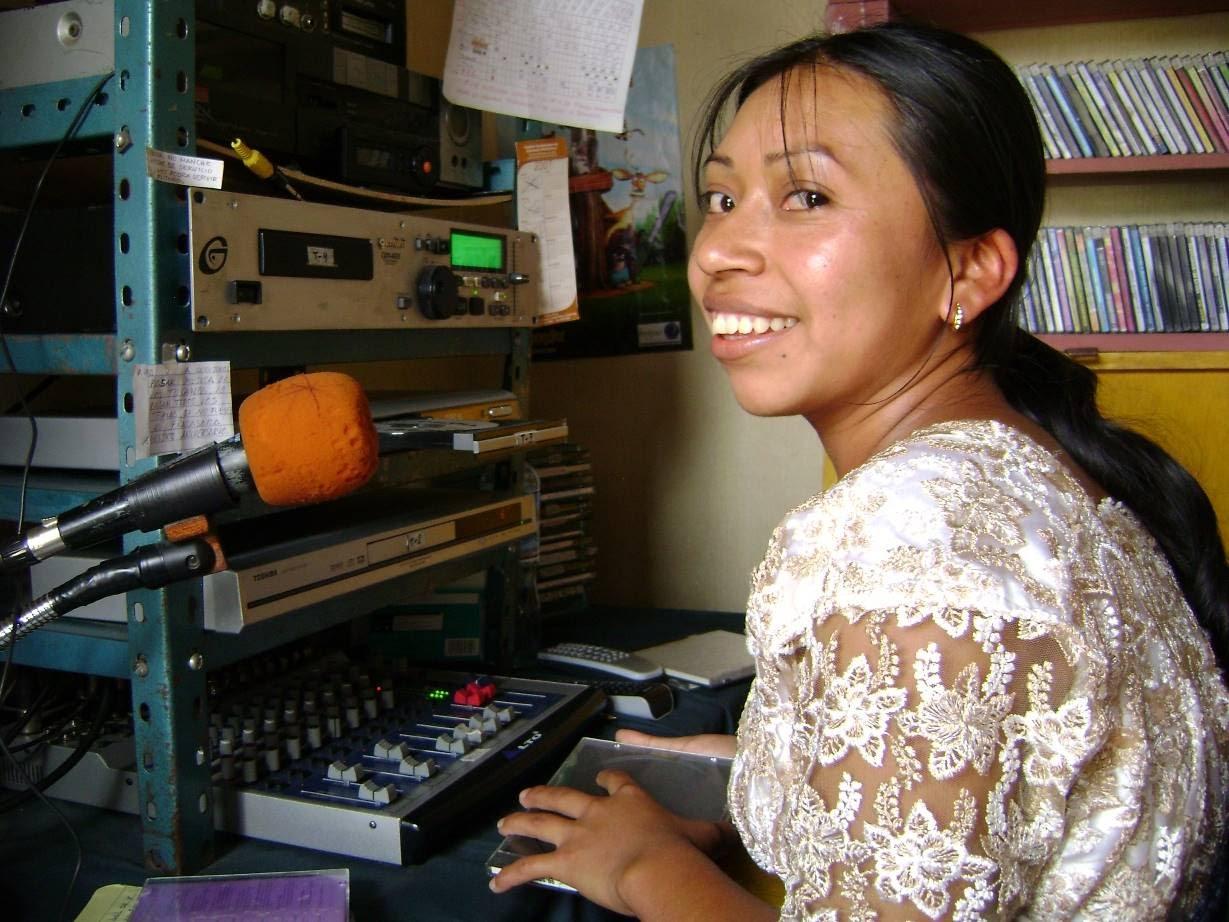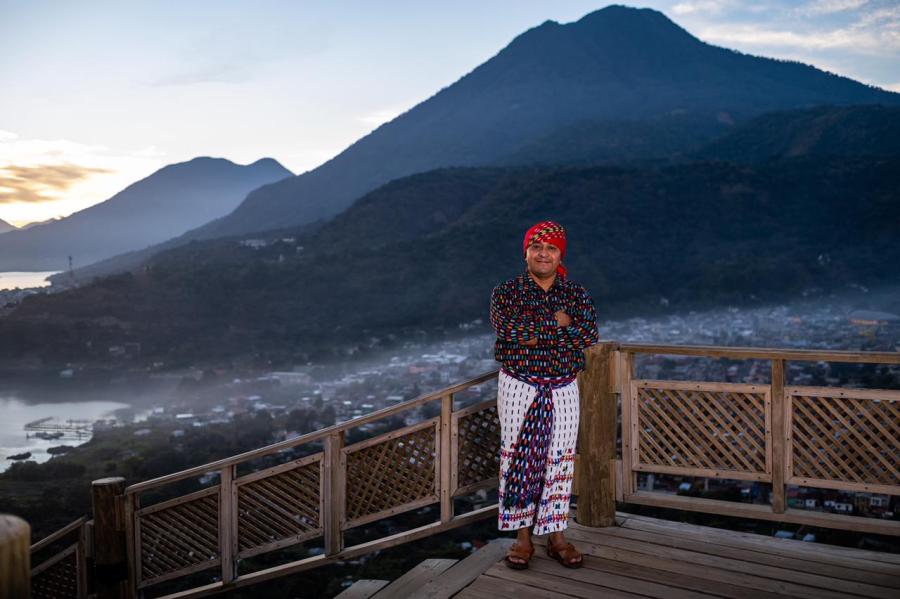
By Ryann Dear
“Freedom of speech,” said Eduardo Laroj, a station volunteer and DJ for Fiesta en mi pueblo, a program that broadcasts marimba orchestras. Laroj’s statement started the discussion on station objectives at a meeting in Sumpango, Guatemala on Saturday, March 8, 2014.
Members of the community radio station Radio Ixchel gathered to talk about what they hope to accomplish with their programming—the first step of the impact evaluation being conducted at the radio. Ajb’ee Jiménez, a native of Huehuetenango with a doctorate in Anthropology from the University of Texas at Austin, and Ryann Dear, a recent graduate of Boston University and current volunteer with Sobrevivencia Cultural, facilitated the conversation.
In talking about the history of the station, volunteers mentioned the need to inform the people as well as support development. Furthermore, Sumpango lacked an equal space for community members, especially musicians, to participate in the media. A musician had approached another radio with their demo CD, only to be turned away and have their music thrown into the trash. The founders of Radio Ixchel—Anselmo Xunic, Valentín Yol Ticum, and Pedro Yol—decided that they needed to stand up for themselves and for their local music. And so became Radio Ixchel, a space created for community participation and education.
In the 11 years since its inception, Radio Ixchel has turned into an extremely active community radio station, broadcasting from 6am-10pm, seven days a week. Programs range from El pueblo opina, an interview talk show, to De Todo Para Todos, a youth music program. Additionally, they transmit children’s programming on Saturday morning, a health segment run by a local doctor, and short spots throughout the day that highlight local businesses, teach phrases in Kaqchikel (the local Indigenous language), and promote Indigenous rights.
With the help of Jiménez, Dear is developing a methodology to gather data about the effectiveness and impacts of Radio Ixchel’s programming on local community members. By evaluating their program content over time, the radio will be able to see how they are perceived by their listeners and if they are achieving the effect they would like.
It is with this in mind that station volunteers eagerly outlined the objectives of their station. Rigoberta González, a station volunteer and DJ for Así es mi pueblo, said, “They have taught us that the woman is of the home, of the kitchen. She’s going to get married, have kids, [and] support her husband… But now, the radio is the voice of a people. It is the space where every woman has value, a voice, and a vote.”
The director of Radio Ixchel, Angélica Cubur, talked about the importance of their political programming:
We have always criticized the work that [our politicians] do… We aren’t just going to talk about the good things. We tell the truth. We can’t hide things, because we’re a community radio. We say things how they are.
From this statement, the Radio Ixchel team pinpointed one of their objectives to be: to question and critique the work of the authorities.
Other objectives included the preservation of Indigenous culture, which included music, language, dress, and tradition; as well as educating the community about their rights, social issues, and local organizations. Not all of the station volunteers speak Kaqchikel. However, they all are adamant about its importance in their radio programming as well as in their personal lives. González, whose program is the only program broadcast in Kaqchikel, noted, “Many people like to listen to my program. What they like to listen to is my language, how I speak the language, and how I translate it.”
Jiménez, an Indigenous Mam, also commented on how valuable language use is:
The theme of language maintenance is broad, and not only here in Sumpango, but at the national level. The only way to save it is to return to speaking in our language. It’s true that there are people who aren’t going to understand, but it’s also true that there are people who seem like they don’t speak [the language], but [in reality] they hide it. The majority have [the ability], even though they don’t speak.
Station volunteers agreed, and asked Jiménez more about his heritage and language. As he is from Huehuetenango, Jiménez speaks Mam. In Sumpango and the surrounding area, the Indigenous population speaks Kaqchikel. Nonetheless, Jiménez and the Radio Ixchel team found common ground in the fact that they face the same problems of Spanish language domination, and share the same goals of Indigenous language preservation. They soon exchanged how to say “Good evening” in their prospective languages. Laughter ensued as the station volunteers struggled to pronounce the phrase in Mam.
By identifying the reasons for which they broadcast and the role they wish to play in their community, Radio Ixchel created the knowledge base on which they can compare listener opinions, and test whether they have been successful in what they set out to achieve on a day-to-day basis through their programs.
“To open a space for all. To give an equal opportunity to everyone,” chorused station volunteers. Community radio can be defined by this participatory, all-inclusive mantra. It is with this emphasis on involvement that the evaluation project continues, as participation ensures that the methods used will be worthwhile and sustainable for the future. Last Saturday, March 29, station volunteers sat down again, this time to begin the discussion on how they will implement listener survey results into their programming. Cubur commented, “We have strengths and we have weaknesses. We need to be able to measure our work, and for that these surveys are very valuable. Thank you.”


